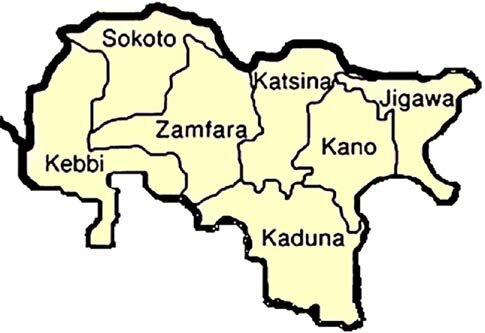In the northwest of Nigeria, a deep-seated crisis unfolds as citizens grapple with the relentless violence of banditry, a scourge that has become increasingly pervasive due to political recklessness. The humanitarian disaster in this region reveals a stark reality where political failures have compounded the suffering of ordinary people, leaving them vulnerable to the brutality of armed groups.
A Region in Crisis
The northwest of Nigeria, encompassing states such as Kaduna, Katsina, Kano, Kebbi Jigawa, Sokoto and Zamfara, has become synonymous with insecurity and violence. Over the past few years, banditry has escalated from sporadic attacks to a full-blown crisis, marked by frequent raids, kidnappings, and massacres. These armed groups operate with alarming impunity, targeting communities with ruthless efficiency and exploiting the region’s security vacuum.
The Human Toll
For the citizens of these affected states, the consequences of banditry are both immediate and devastating. Many have lost their lives in brutal attacks or during attempted kidnappings. Families are torn apart, with individuals often left in dire straits after their loved ones are murdered or abducted. Women and children, in particular, are disproportionately affected, facing not only the physical violence of raids but also severe psychological trauma.
The plight of women in this crisis is particularly harrowing. Reports from various sources reveal that women are frequently subjected to sexual violence, including rape and forced marriages. The psychological scars and physical consequences of such violence are compounded by the stigma and lack of support services available to survivors.
Political Failures and Neglect
The root of this crisis lies in political recklessness and systemic failure. Despite the growing severity of the situation, political leaders at both state and national levels have been criticized for their inadequate response. The failure to provide effective security measures, coupled with widespread corruption and mismanagement of resources, has left the region’s security forces ill-equipped to deal with the bandit threat.
Efforts to combat banditry have often been hampered by a lack of coordination among security agencies and insufficient investment in infrastructure and training. This has led to a situation where bandits are able to operate with relative freedom, knowing that they face little risk of substantial retaliation.
The Path Forward
Addressing this crisis requires a multifaceted approach. Immediate measures must include enhancing security operations to disrupt and dismantle bandit groups. This should be accompanied by a strategic investment in community-based programs that support victims and provide resources for rebuilding affected communities.
Long-term solutions necessitate political accountability and reform. Leaders must be held accountable for their failures and must prioritize the safety and well-being of their constituents. There is also a pressing need for improved governance and transparency to ensure that resources are effectively utilized for the benefit of the affected population.
Conclusion
The suffering of citizens in northwest Nigeria, exacerbated by political recklessness, underscores the urgent need for comprehensive action. As the region continues to endure the horrors of banditry, it is essential that both local and national leaders commit to meaningful reforms and effective interventions. Only through dedicated efforts can the cycle of violence be broken and a path to recovery and peace be forged for the people of northwest Nigeria.







